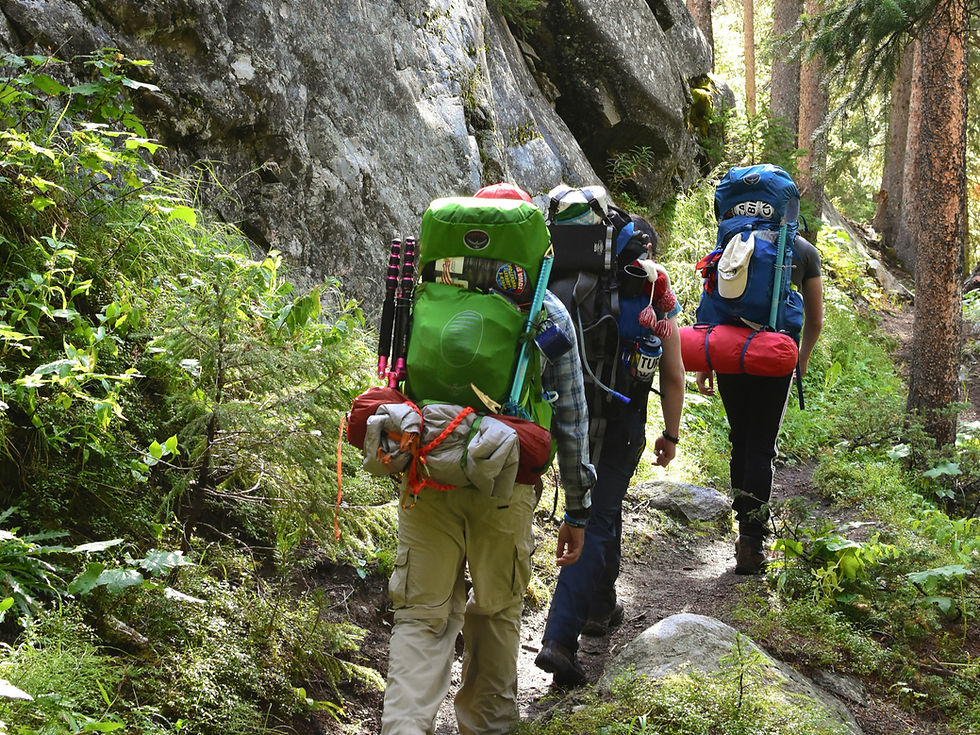The Backpacker’s Guide to Sustainable and Ethical Travel
- Josh O'Donnell

- Aug 28, 2025
- 3 min read
Updated: Sep 6, 2025

Backpacking isn’t just about where you go—it’s about how you go. Sustainable and ethical travel invites us to move through the world with intention, respect, and care. It’s a way of traveling that honours local communities, protects fragile ecosystems, and deepens our connection to the places we visit.
For first-time backpackers, the journey toward responsible travel begins with awareness. Every choice—from where you sleep to what you eat—can either support or strain the destinations you explore. This guide offers practical steps and emotional insight to help you travel lightly, ethically, and with purpose.
Understanding Sustainable Travel
Sustainable travel means minimizing your environmental impact while maximizing positive contributions to local economies and cultures. It’s about choosing eco-friendly transportation, supporting small businesses, and reducing waste.
Sustainable Travel International offers a clear framework for responsible tourism, including tips on carbon offsetting, ethical wildlife experiences, and community engagement. Their Beginner’s Guide to Sustainable Travel is a great starting point for new explorers.
Green Global Travel, founded by Bret Love and Mary Gabbett, blends storytelling with conservation. Their eco travel tips cover everything from reusable gear to ethical animal tourism, helping backpackers make informed choices.
Ethical Travel Principles
Ethical travel goes beyond sustainability—it’s about cultural sensitivity, fair treatment, and conscious decision-making. Shivya Nath of The Shooting Star writes about travel at the intersection of sustainability and self-discovery, offering reflections on responsible tourism and the importance of listening to local voices.
The Broke Backpacker’s Code of Ethics outlines key principles: respect for cultures, environmental stewardship, support for local communities, and ethical transportation. It’s a practical manifesto for travellers who want to do good while exploring the world.
Fair Tourism, a Netherlands-based organization, provides resources on ethical travel and vocational training in sustainable tourism. Their travel advice and stories highlight the importance of fair wages, responsible volunteering, and community-led tourism.
Avoid harmful animal tourism. Gap Year World’s ethical backpacking guide offers advice on supporting wildlife rescue centres and avoiding exploitative attractions.
Practical Tips for Sustainable Backpacking
Start with gear. Reusable water bottles, solid toiletries, and eco-friendly clothing reduce waste and support ethical production. Ecotourism World’s eco travel advice includes packing guides and destination tips for solo, family, and luxury travellers.
Choose accommodations that prioritize sustainability. Soul Travel’s eco-lodge recommendations feature wellness retreats and community projects that promote gender equality and environmental care.
Support local economies by eating at family-run restaurants, buying handmade goods, and choosing tours led by local guides. The Altruistic Traveler’s ethical travel blog explores how tourism dollars can empower communities and promote compassion.
Content Creators Who Champion Ethical Travel
These voices help demystify sustainable travel and offer practical, emotionally grounded guidance.
Green Global Travel shares conservation-focused stories and eco travel tips.
The Shooting Star explores meaningful travel and cultural sensitivity.
The Altruistic Traveler promotes ethical tourism and community development.
Soul Travel features eco-lodges and responsible travel experiences.
The Broke Backpacker offers ethical travel advice and gear reviews.
Fair Tourism provides educational resources and sustainable travel stories.
Final Thoughts
Sustainable and ethical travel isn’t about being perfect—it’s about being present. It’s about asking questions, making conscious choices, and leaving places better than you found them. For backpackers, this means traveling with humility, curiosity, and care.
Whether you’re hiking through rainforests, exploring ancient cities, or sharing stories in a village homestay, your impact matters. With the right mindset and resources, you can explore the world in a way that honours its people, protects its landscapes, and deepens your own journey.



